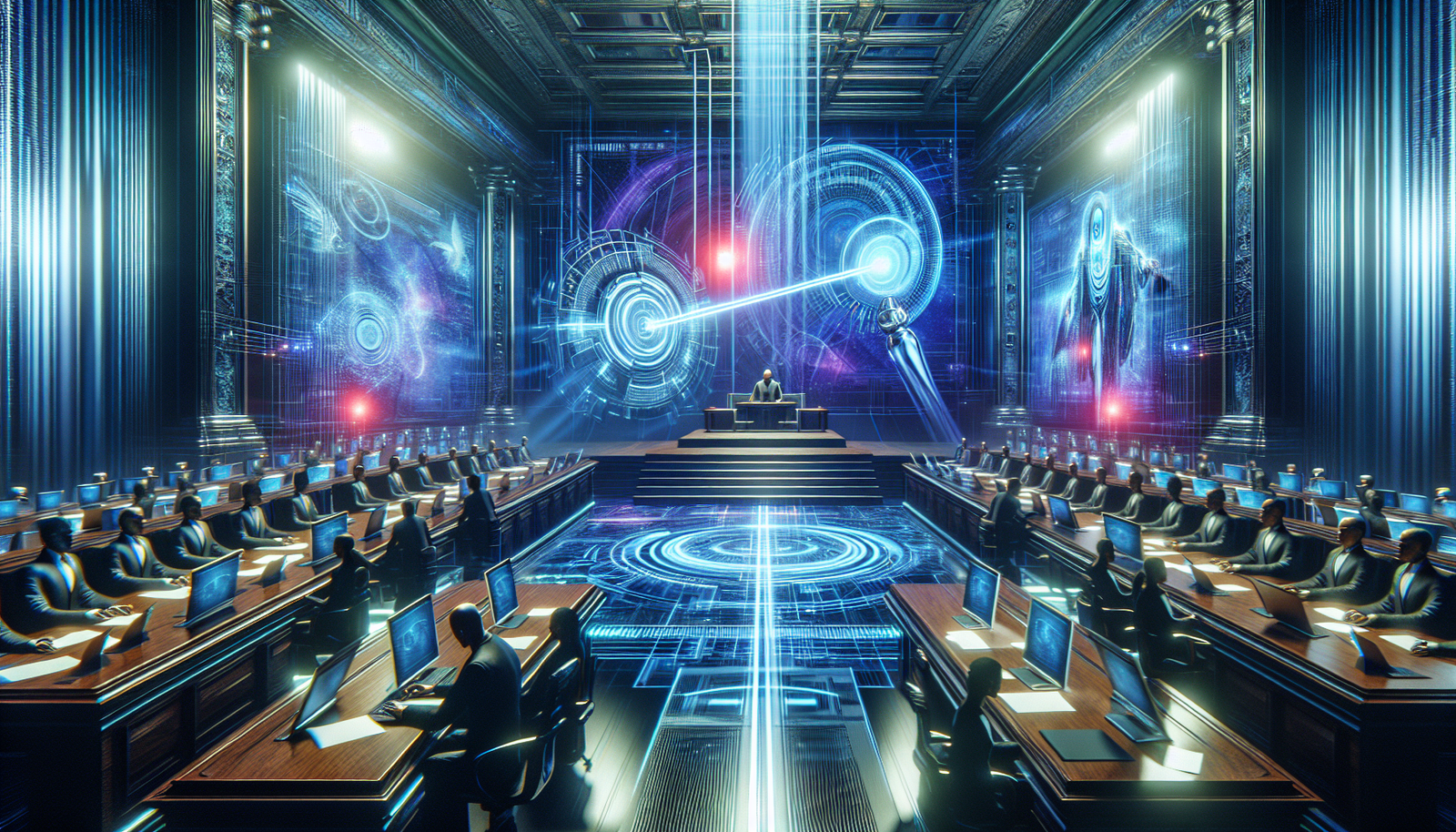OpenAI, the origin of the artificial intelligence revolution with ChatGPT, is intensifying the confrontation with Elon Musk. The company announces a lawsuit, pointing fingers at a *relentless campaign* orchestrated by the former co-founder. This legal dispute raises monumental stakes for the technological and ethical future of AI.
The rivalry is becoming explosive. OpenAI accuses Musk of harmful interference, seeking to obstruct its unprecedented rise. Millions in investments at stake. OpenAI’s determination to defend its business model against a former ally is clearly on display. The legal implications are expected to be complex. The following of this litigation may not be limited to financial stakes, but could define the future landscape of artificial intelligence.
Legal dispute between OpenAI and Elon Musk
OpenAI, a pioneering company in generative AI, recently launched a lawsuit against its former co-founder, Elon Musk. This initiative comes after an escalating conflict between the billionaire and the company, following several mutual accusations. The legal documents filed in a California court state an accusation from OpenAI claiming that Musk has engaged in a “relentless campaign” to harm the company.
Accusations made by OpenAI
OpenAI argues that Musk, who left the company before its breakthrough in artificial intelligence, became hostile after its success. The company alleges that the billionaire could not bear the ascendance of an organization he had abandoned, which was yet promised to fail. The complaint includes a request for an injunction to halt further actions deemed “illegal and unfair”.
Musk’s counter-argument
In response to this complaint, Musk’s lawyer stated that OpenAI’s board should have truly considered the control offer made by the billionaire. Musk led a consortium that proposed to buy OpenAI for a substantial value of $97.4 billion. His offer is perceived by OpenAI as an attempt to take control of all of the company’s assets.
OpenAI’s reaction to Musk’s actions
OpenAI accuses Elon Musk of orchestrating misinformation, notably through speeches on his social platform, X. The company claims that the co-founder is using his platform to harm its reputation by presenting legal changes as a total conversion, causing confusion and dissatisfaction among potential investors. The legal documents mention damages suffered due to the campaign of harassment, interference, and misinformation.
History of tensions between Musk and OpenAI
OpenAI was founded in 2015 as a nonprofit research lab, with the ambition of ensuring that general artificial intelligence (AGI) is beneficial to humanity. Musk was one of the main investors, but his support waned as he distanced himself from the organization. OpenAI emphasizes that Musk left the company after failing to impose his requirements regarding its control or integration into Tesla.
Consequences of the conflict on OpenAI’s reputation
In light of these events, OpenAI is forced to modify its statutes to transform into a traditional company while maintaining a nonprofit parent organization. This transformation occurs as the company has reached an impressive valuation of $300 billion, following a record-breaking funding round. The need to protect its image and resources becomes paramount for the company.
Future perspectives and stakes
The legal quarrel between Elon Musk and OpenAI highlights crucial stakes for the future of artificial intelligence. The continuation of Musk’s actions could impact the dynamics within the technology sector, causing repercussions not only for OpenAI but also for other competing companies. The outcome of this trial could define expectations for AI development and the associated accountability standards.
This conflict also raises questions about the connections between visionaries in the technology sector and the ethical implications of their actions. Various ongoing cases, which regularly provide us with details, underscore the fragility of trust between artificial intelligence companies and their leaders. To explore other perspectives on the subject, it is interesting to read related analyses in the sector. For more information, consulting the articles available at this link may be wise.
Frequently asked questions about OpenAI’s lawsuit against Elon Musk
Why did OpenAI file a lawsuit against Elon Musk?
OpenAI has filed a complaint against Elon Musk, accusing him of leading a relentless campaign to harm the company after his departure, notably by multiplying attacks in the press and using his social platform to spread misleading information.
What are the main arguments of OpenAI in its complaint?
The main arguments include the accusation that Musk attempted to destroy OpenAI in order to build a competitor for his own benefit, as well as allegations of a misinformation and harassment campaign against the company.
What type of compensation is OpenAI seeking in this case?
OpenAI is seeking an injunction to halt Musk’s actions deemed illegal and unfair, as well as compensation for the damages suffered due to his actions.
How has Elon Musk reacted to OpenAI’s lawsuit?
Elon Musk, through his lawyer, stated that if OpenAI’s board had examined his purchase offer, they would have recognized its legitimacy, implying that the company was not taking his offer seriously, which justifies his behavior.
What consequences could this lawsuit have for OpenAI?
This lawsuit could result in significant legal costs, generate increased media attention, and potentially impact OpenAI’s reputation, while forcing the company to defend itself against public accusations.
Has OpenAI been involved in other lawsuits before?
Yes, OpenAI has been involved in various legal cases, but the one against Elon Musk is particularly notable due to the billionaire’s stature and the stakes related to artificial intelligence.
What implications could this situation have for the artificial intelligence sector?
This case could influence relationships and rivalries within the AI sector, affecting competition dynamics and the public perception of major industry players.
How does this lawsuit affect OpenAI’s employees and investors?
The situation could create uncertainty for employees and investors, with concerns regarding the stability of the company, although OpenAI continues to experience strong market valuation.
What are the next steps in this lawsuit?
The next steps include court hearings, submission of evidence, and potentially a pre-trial settlement, depending on the evolution of negotiations between the parties involved.






